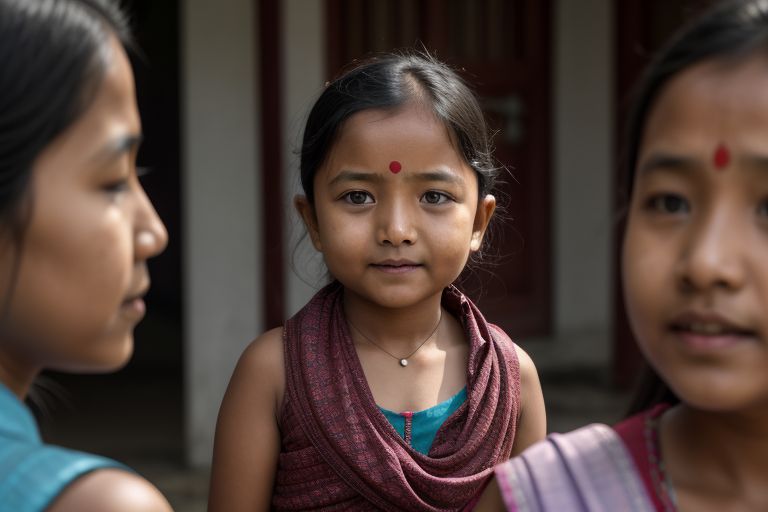In an important health intervention, girls aged 10 to 14 years in Nepal are being vaccinated against the human papillomavirus. The campaign, starting today in Kathmandu, is to guard young girls from cervical cancer, the most prevalent cancer among women in Nepal.
The Ministry of Health and Population has through the support of international health organizations mobilized health care workers in the administration of the HPV vaccine across the country. The campaign is expected to reach more than 1, 68,000 girls in the coming months, and the largest public health intervention undertaken in Nepal.
Health Minister Bhawani Prasad Khapung launched the campaign in Kathmandu by asking people to get vaccinated against cervical cancer. He said the government will spearhead the fight against this unnecessary disease burden and enhance the health of women in the country.
The anti-HPV vaccine that targets the HPV strains most associated with cervical cancer will again be given in two doses six months apart. Several studies conducted in different countries have shown that the vaccine is safe, and the World Health Organization supports its use as a first line of defense against cervical cancer.
In order to reach as many people as possible, the vaccination will be administered in schools, health facilities and mobile vaccination in the villages. The government has educated thousands of health care personnel and other volunteers to give the vaccine and educate families on the importance of taking the vaccine.
The campaign has been endorsed by several global partners such as GAVI, the Vaccine Alliance, which has offered financial and financial support. Both UNICEF and WHO are also participating in the initiative through contributing towards vaccine purchase, storage and transportation and sensitization of the community.
This campaign has been welcomed by the public health experts as a big boost to the Nepalese campaign against cervical cancer. Dr. A WHO official Sushil Nath Pyakurel, Director of the Family Welfare Division, said that the vaccination may save thousands of lives in the coming decades from cervical cancer due to HPV infections.
However, there are still some obstacles in front of the campaign that is otherwise widely supported. Government health officials agree that there is an issue with some communities not trusting vaccines and other false information circulating. In response to this, the government has embarked on an extensive public awareness campaign through different media stations and social and community activities to sensitize the public on the efficacy and safety of the HPV vaccine.
The campaign also has practical difficulties, including how to get the message to girls living in the mountainous areas. To this end, the health ministry has engaged local NGOs and is employing new solutions like delivery of vaccines by drones to endangered regions.
Besides the vaccination campaign, the government is also focusing on cervical cancer screening activities for women who are not eligible to receive the vaccination. This approach is meant to be all inclusive for the reduction of cervical cancer in every age bracket.
Success of this campaign could open doors for the use of HPV vaccine in the future immunization program of Nepal for future generations. Public health workers hope that this endeavor will go a long way in easing the cervical cancer disease burden in Nepal and possibly set a precedent for other developing nations with similar health care issues.
At the same time, the campaign will be evaluated by health authorities as it unfolds, with subsequent research to be done in order to determine vaccine coverage and efficacy. They have also reassured the public that they plan to continue this effort and consider how to make other important vaccines and health services more available to people in other regions of the country.


